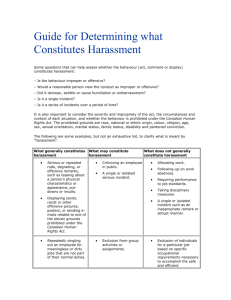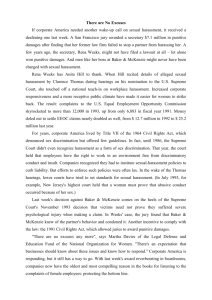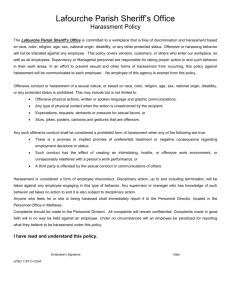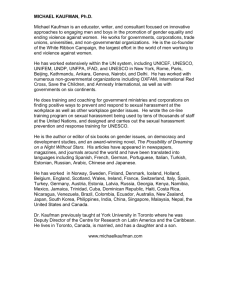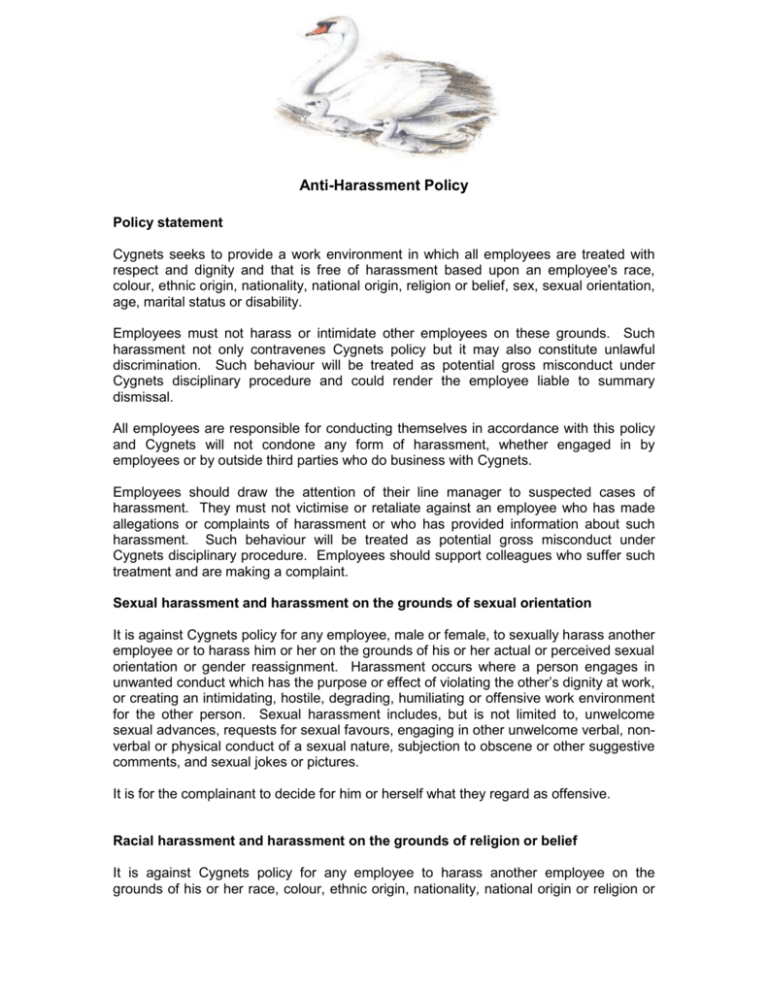
Anti-Harassment Policy
Policy statement
Cygnets seeks to provide a work environment in which all employees are treated with
respect and dignity and that is free of harassment based upon an employee's race,
colour, ethnic origin, nationality, national origin, religion or belief, sex, sexual orientation,
age, marital status or disability.
Employees must not harass or intimidate other employees on these grounds. Such
harassment not only contravenes Cygnets policy but it may also constitute unlawful
discrimination. Such behaviour will be treated as potential gross misconduct under
Cygnets disciplinary procedure and could render the employee liable to summary
dismissal.
All employees are responsible for conducting themselves in accordance with this policy
and Cygnets will not condone any form of harassment, whether engaged in by
employees or by outside third parties who do business with Cygnets.
Employees should draw the attention of their line manager to suspected cases of
harassment. They must not victimise or retaliate against an employee who has made
allegations or complaints of harassment or who has provided information about such
harassment. Such behaviour will be treated as potential gross misconduct under
Cygnets disciplinary procedure. Employees should support colleagues who suffer such
treatment and are making a complaint.
Sexual harassment and harassment on the grounds of sexual orientation
It is against Cygnets policy for any employee, male or female, to sexually harass another
employee or to harass him or her on the grounds of his or her actual or perceived sexual
orientation or gender reassignment. Harassment occurs where a person engages in
unwanted conduct which has the purpose or effect of violating the other’s dignity at work,
or creating an intimidating, hostile, degrading, humiliating or offensive work environment
for the other person. Sexual harassment includes, but is not limited to, unwelcome
sexual advances, requests for sexual favours, engaging in other unwelcome verbal, nonverbal or physical conduct of a sexual nature, subjection to obscene or other suggestive
comments, and sexual jokes or pictures.
It is for the complainant to decide for him or herself what they regard as offensive.
Racial harassment and harassment on the grounds of religion or belief
It is against Cygnets policy for any employee to harass another employee on the
grounds of his or her race, colour, ethnic origin, nationality, national origin or religion or
belief. Harassment occurs where a person engages in unwanted conduct which has the
purpose or effect of violating the other’s dignity at work, or creating an intimidating,
hostile, degrading, humiliating or offensive work environment for the other person.
Racial harassment includes, but is not limited to, engaging in unwelcome verbal, nonverbal or physical conduct of a racial nature, subjection to racist comments, and racist
jokes or pictures. Racial harassment and harassment on the grounds of religion or belief
may comprise intentional bullying which is obvious or violent but it can also be
unintentional or subtle, such as the use of nicknames or teasing.
It is for the complainant to decide for him or herself what they regard as offensive.
Harassment on the grounds of disability or age
Finally, it is against Cygnets policy for any employee to harass another employee on the
grounds of his or her disability or age. The principles set out above apply equally to
harassment on the grounds of disability or age.
Reporting and investigation of complaints
All allegations of harassment will be dealt with seriously, confidentially and speedily.
Cygnets will not ignore or treat lightly grievances or complaints of harassment from
members of a particular sex, sexual orientation, religion or racial group or from
employees who are disabled.
While Cygnets encourages employees who believe they are being harassed to notify the
offender (by words or by conduct) that his or her behaviour is unwelcome, Cygnets also
recognises that actual or perceived power and status disparities may make such
confrontation impractical.
In the event that such informal, direct communication between employees is either
ineffective or impractical, the following steps should be followed in reporting a complaint
of harassment:
1. Any employee who believes he or she has been or is being harassed in violation of
this policy, or who wishes to report an incident of harassment, should report the
situation to the manager. If the employee does not wish to speak to their line
manager, they can instead speak to the Owner.
2. Such reports should be made promptly so that investigation may proceed and any
action taken expeditiously.
3. All allegations of harassment will be taken seriously. The allegation will be promptly
investigated and, as part of the investigatory process, the employee will be
interviewed and asked to provide a written witness statement setting out the nature
and details of the incident or complaint and the basis for it. Confidentiality will be
maintained during the investigatory process to the extent that this is practical and
appropriate in the circumstances. However, in order to effectively investigate an
allegation, Cygnets must be able to determine the scope of the investigation and the
individuals who should be informed of or interviewed about the allegation.
4. Cygnets will also invite the employee to attend at least one meeting at a reasonable
time and place at which his or her complaint can be discussed and the employee
must take all reasonable steps to attend that meeting. The employee has the right to
be accompanied at that meeting by either a trade union official or a fellow employee
of their choice.
5. Once the investigation has been completed and after the meeting with the employee
has taken place, the employee will be informed in writing of the outcome and
Cygnets conclusions and decision as soon as possible. The employee will also be
notified in writing of his or her right to appeal against Cygnets decision if he or she is
not satisfied with it. Cygnets are committed to taking appropriate action with respect
to all complaints of harassment which are upheld.
6. If the employee wishes to appeal against Cygnets decision, he or she must appeal in
writing to a more senior manager or to a Director of Cygnets within five working days
of Cygnets decision. On receipt of such a request, a more senior manager or a
Director (who may not be the person to whom the employee addressed their appeal)
shall make arrangements to hear the appeal at an appeal meeting and at that
meeting the employee may again, if they wish, be accompanied by either a trade
union official or a fellow employee of their choice. The employee must take all
reasonable steps to attend that meeting. Following the meeting, the relevant
manager or Director will inform the employee in writing of Cygnets final decision on
the employee’s appeal.
7. Employees will not be penalised for raising a complaint, even if it is not upheld,
unless the complaint was both untrue and made in bad faith.
Alternatively, the employee may use Cygnets grievance procedure to make a complaint.
The grievance procedure is similar to this procedure.
Disciplinary action
Any employee of Cygnets who is found to have harassed another employee in violation
of this policy will be subject to appropriate disciplinary action under Cygnets disciplinary
procedure. Such behaviour may be treated as potential gross misconduct and could
render the employee liable to summary dismissal.
In addition, line managers who had knowledge that such harassment had occurred in
their departments but who had taken no action to eliminate it will also be subject to
disciplinary action under Cygnets disciplinary procedure.
Reviewed Sept 2012


